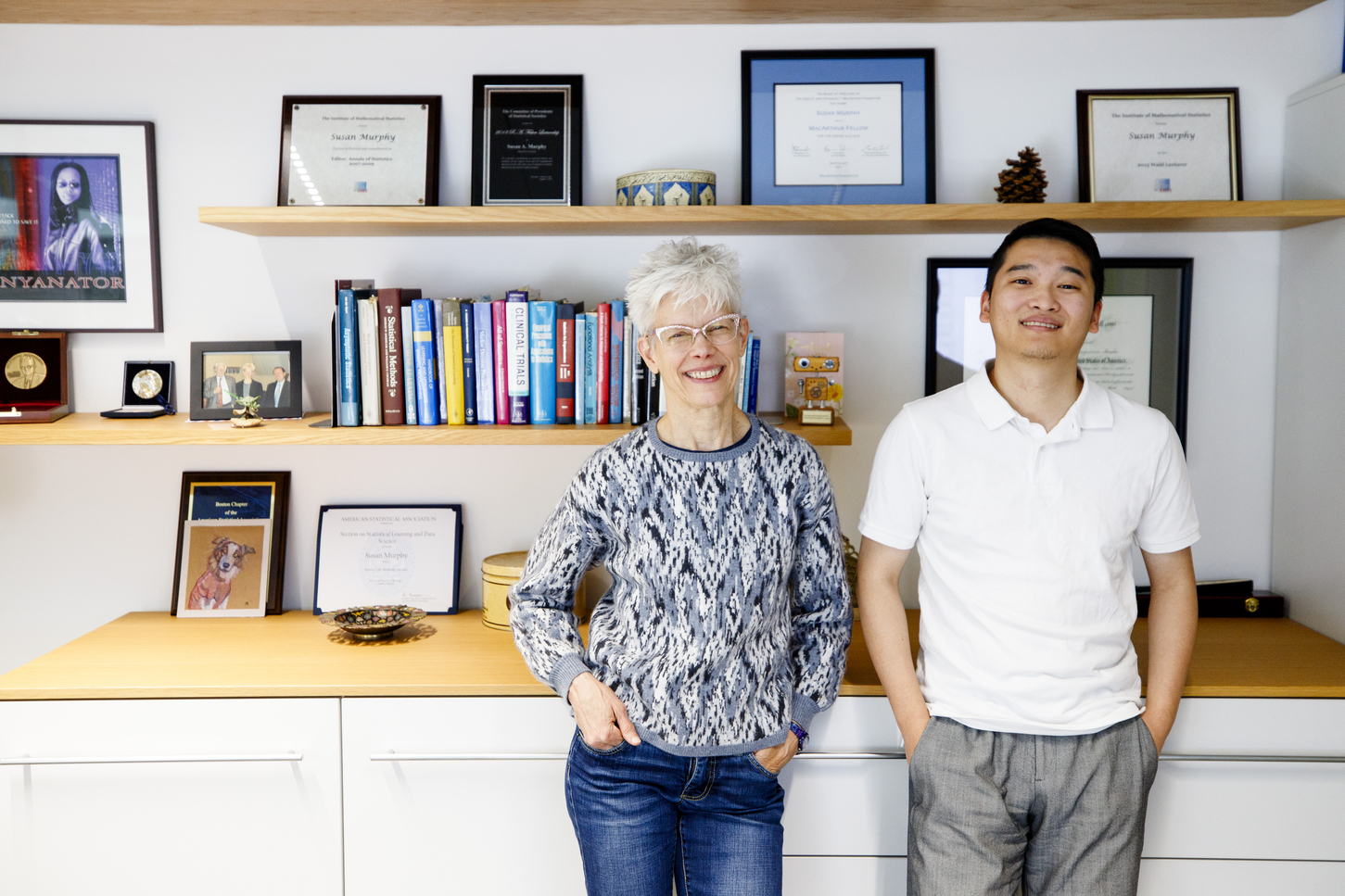Healthcare apps are revolutionizing the way we approach wellness, providing users with personalized health management tools directly in their pockets. These innovative mobile health technologies are particularly beneficial for individuals navigating complex medical journeys, such as cancer patients relying on cancer support apps during their treatment. By leveraging advanced AI in healthcare, these applications utilize reinforcement learning algorithms to adapt their recommendations based on the user’s behaviors and needs in real time. This modern approach ensures that users receive tailored interventions, fostering better adherence to treatment plans and improving overall health outcomes. As the market for healthcare apps continues to grow, the potential for enhancing patient care and support expands dramatically.
Digital health solutions, commonly referred to as mobile health applications, are transforming the landscape of patient care and personal wellbeing. These intuitive tools are especially crucial for those managing serious health conditions, offering features that cater to the unique needs of users in various scenarios, particularly for chronic illness management. By integrating sophisticated artificial intelligence and adaptive learning methods, these applications ensure a more responsive and supportive experience, aligning with users’ personal health goals. Moreover, the strategic use of behavioral data allows for timely, nuanced interventions, offering a brighter future for holistic health management. As technology continues to advance, the role of these digital assistants in health management is becoming more pivotal, opening doors to innovative avenues of patient engagement.
The Rise of Healthcare Apps
In recent years, healthcare apps have gained immense popularity, providing individuals with tools to manage their health more effectively. These mobile health technology solutions are designed to offer tailored functionalities that address a variety of health concerns, from fitness tracking to medication management. The emergence of sophisticated technologies such as AI in healthcare has enabled developers to create more interactive and user-friendly applications. For instance, cancer support apps specifically cater to the unique needs of patients, helping them manage their treatment plans, track symptoms, and find communities of support.
Moreover, the versatility of healthcare apps allows for personalized health management. By incorporating algorithms that adapt to user behaviors and preferences, these applications can improve adherence to health regimens significantly. Users who struggle with consistent medication schedules, for instance, can benefit from real-time reminders and motivational prompts that adjust according to their adherence patterns. This proactive approach not only enhances the user experience but also plays a crucial role in improving health outcomes.
AI in Healthcare: Transforming Patient Support
Artificial Intelligence (AI) has become a cornerstone in transforming healthcare delivery, particularly for cancer patients. Algorithms that utilize reinforcement learning can create personalized support systems by analyzing user data, interactions, and historical behavior. For example, an app designed for cancer patients undergoing treatment can adapt its notifications and reminders based on real-time analyses of user engagement. This tailored experience has shown promise in increasing medication adherence and improving patients’ overall management of significant health challenges.
In tandem with mobile health technology, AI not only enhances the functionality of healthcare apps but also fosters a deeper connection between patients and their caregivers. By customizing prompts that encourage family interaction and support, these apps serve as vital tools in the recovery process. This type of adaptive intervention truly exemplifies how integrating AI in healthcare can create a revolutionary impact on how patients cope with the complexities of their medical journeys.
The Role of Reinforcement Learning in Health Management
Reinforcement learning plays an essential role in developing innovative healthcare solutions. Unlike traditional algorithms, which follow a static approach, reinforcement learning continuously improves itself based on feedback and user interaction. This adaptability allows healthcare apps to refine their suggestions and interventions over time, providing patients with the most relevant and timely support during their recovery.
For instance, through reinforcement learning, an app might learn that sending a reminder about medication at a specific time enhances adherence in certain users. By harnessing this technology, apps can better serve specialized patient populations, such as those recovering from stem cell transplants, efficiently guiding them through their recovery process and minimizing the burden of treatment-related complications.
Personalized Health Management through Mobile Technology
Mobile health technology is revolutionizing personalized health management by providing users with tailored experiences that directly respond to their unique health needs. These applications often employ complex algorithms to analyze user behaviors and outcomes, leading to highly customized health interventions. For example, individuals using cannabis for medicinal purposes can benefit from apps that track their intake and suggest reduced dosages based on their progress, ultimately fostering safer usage practices.
Furthermore, the integration of various data points from users allows healthcare providers to gain insights into the efficacy of treatment plans and make data-driven decisions. This personalization empowers users to take charge of their health, leading to enhanced satisfaction and engagement with healthcare solutions. As mobile technology continues to evolve, the possibilities for personalized health management will expand, paving the way for innovative applications that cater to various health challenges.
Building Community Through Cancer Support Apps
Cancer support apps are increasingly focusing on building a sense of community among users. By connecting patients with similar experiences, these applications provide invaluable emotional support and encouragement. Many of these platforms feature discussion boards, social media integrations, and collaborative tools that help users share their journeys, challenges, and successes. This community aspect can be incredibly beneficial for patients, as it allows them to feel less isolated during their recovery.
Additionally, the exchange of experiences among users can lead to the development of coping strategies that might not be found in traditional healthcare settings. By facilitating a supportive environment, cancer support apps help users foster resilience, which can significantly impact their emotional and psychological well-being. The importance of community in healthcare cannot be understated, and these apps play a crucial role in creating networks that bolster patient morale throughout their cancer journeys.
Improving Patient-Caregiver Communication
One of the significant advantages of modern healthcare apps is their ability to enhance communication between patients and caregivers. These applications are designed to streamline information sharing, allowing both parties to stay informed about medication schedules, treatment plans, and care tasks. By integrating communication features directly into the app, caregivers can receive notifications regarding medication timings or updates on the patient’s progress, ensuring a collaborative approach to health management.
This transparency in communication not only increases accountability but also empowers caregivers to support patients more effectively. Patients may feel more at ease knowing that they have their caregivers’ support readily available. This improved relationship can lead to better health outcomes as both parties work together to navigate the complexities of treatment and recovery.
The Future of Mobile Health Technology
The future of mobile health technology holds tremendous potential for transforming patient care and chronic disease management. With ongoing advancements in AI and machine learning, we can expect even more sophisticated applications that provide personalized insights and proactive interventions. As these technologies become more refined, healthcare apps will likely evolve to address a wider range of medical conditions and patient needs.
Moreover, the integration of new features, such as telemedicine capabilities and advanced analytics, could further enhance the user experience. Healthcare apps are poised to become not just tools for monitoring health but comprehensive platforms for managing every aspect of patient care. This evolution will empower individuals to take a more active role in their health management, ultimately leading to healthier communities.
Utilizing Data for Enhanced Patient Outcomes
Data utilization stands at the core of modern healthcare apps, enhancing their capacity to deliver tailored support to users. By collecting and analyzing data on user interactions, health outcomes, and adherence levels, these applications can continuously refine their algorithms to better cater to individual needs. This data-driven approach enables healthcare providers to develop more effective treatment plans while also empowering patients to monitor their progress and make informed decisions about their health.
Furthermore, actionable insights derived from user data allow for a more targeted approach to health interventions. For instance, when apps identify trends in user behavior, they can provide relevant prompts that align with the user’s lifestyle, ultimately facilitating better care management. This emphasis on data-driven outcomes not only improves adherence but also enhances overall patient satisfaction and engagement with healthcare solutions.
Challenges in the Development of Healthcare Apps
Despite the exciting advancements in healthcare app development, there are notable challenges that developers face. Issues such as data privacy and security remain at the forefront of concerns as apps collect sensitive personal health information. Ensuring compliance with regulations such as HIPAA is essential for maintaining patient trust and safeguarding their data.
Additionally, developers must navigate the complexities of creating user-friendly interfaces that accommodate diverse patient populations. For healthcare apps to be truly effective, they must be accessible to all users, including those with varying levels of technological proficiency. Addressing these challenges is crucial to the long-term success and adoption of healthcare applications.
Integrating Behavioral Science into Healthcare Applications
Incorporating behavioral science into the design of healthcare applications enhances their effectiveness by promoting user engagement and sustained behavior change. Understanding the psychological factors that influence health behaviors allows developers to create strategies that motivate users to adhere to their treatment plans. For example, gamification elements, such as rewards for reaching milestones, can increase user participation.
Moreover, integrating concepts from behavioral science helps apps to address common barriers that users face, such as lack of motivation or forgetfulness. By employing targeted interventions based on behavioral insights, healthcare applications can significantly improve user outcomes, making them not only tools for tracking health but also catalysts for change in users’ lives.
Frequently Asked Questions
What advantages do healthcare apps, specifically cancer support apps, offer to patients?
Healthcare apps, particularly cancer support apps, provide personalized health management by offering real-time support tailored to the unique needs of cancer patients. They can guide medication schedules, manage side effects, and facilitate communication with caregivers, helping patients enhance adherence and improve their overall treatment experience.
How does AI in healthcare enhance the functionality of mobile health technology?
AI in healthcare significantly boosts the capabilities of mobile health technology by enabling applications to deliver personalized interventions. For instance, AI algorithms can analyze patient data to customize reminders, track medication adherence, and provide psychosocial support, ensuring that patients receive the right support at the right time.
What is reinforcement learning and how is it applied in healthcare apps?
Reinforcement learning is a type of machine learning where algorithms learn from the consequences of actions to make optimal decisions. In healthcare apps, it is applied to create adaptive interventions that adjust based on user behavior and feedback, enhancing user engagement and improving outcomes for patients managing chronic diseases or recovery after procedures.
How can personalized health management through healthcare apps benefit cancer patients?
Personalized health management via healthcare apps allows cancer patients to receive tailored support that fits their individual health needs. This includes customized medication reminders, motivational prompts, and social support features that foster better communication with caregivers, ultimately aiding in treatment adherence and emotional well-being during recovery.
What role do mobile health technology and AI play in supporting stem cell transplant patients?
Mobile health technology, combined with AI, plays a crucial role in supporting stem cell transplant patients by providing customized care through apps that track medication adherence and offer timely psychological support. These apps leverage advanced algorithms to adapt to the patients’ changing needs, enhancing their overall recovery experience.
What are just-in-time adaptive interventions in the context of healthcare apps?
Just-in-time adaptive interventions refer to a strategic approach in healthcare apps that deliver support and resources at the most opportune moments, based on the user’s real-time needs and context. This method is particularly effective for managing chronic conditions, as it ensures that patients receive timely and relevant assistance to encourage adherence to treatment.
How do healthcare apps foster collaboration between cancer patients and their caregivers?
Healthcare apps foster collaboration between cancer patients and their caregivers by incorporating features that enhance their communication and support each other’s health goals. For example, apps may include shared task lists, reminders for medication, or interactive games that engage both parties, thus promoting a supportive environment crucial for effective health management.
In what ways do mobile health apps utilize algorithms to improve patient engagement?
Mobile health apps utilize algorithms, particularly reinforcement learning, to analyze user interactions and refine their strategies for engagement. This allows the apps to provide personalized reminders, motivational prompts, and relevant content, which enhances user interaction and compliance with health guidelines, making the management of health issues more effective.
| Feature | Description |
|---|---|
| Personal Healthcare Coach | Provides continuous support tailored to individual needs using algorithms. |
| Target Audience | Cancer patients, cannabis users, and their caregivers who require medication management and support. |
| Reinforcement Learning Algorithms | Algorithms that adapt to user interactions to provide personalized care and reminders. |
| Just-in-Time Adaptive Intervention | Supports users at crucial moments based on changing needs and context. |
| Collaboration for Development | Joint effort with clinicians and scientists to enhance patient care through technology. |
| Clinical Trials | First-round trials includes ADAPTS HCT focusing on stem-cell transplant patients. |
| Social Support Features | Includes games like word-guessing to strengthen patient-caregiver relationships. |
| Adaptive Notifications | Customizes medication reminders based on previous interactions to increase effectiveness. |
| Scope of Applications | Projects like MiWaves for cannabis users and Oralytics for dental care adherence. |
Summary
Healthcare apps are evolving to provide more tailored and responsive support for users, such as cancer patients and caregivers. By integrating advanced algorithms and real-time data analysis, these applications not only enhance treatment adherence but also foster essential social connections. Health technology innovations like these represent a significant step towards making healthcare support more accessible and personalized, ultimately aiming to improve patient outcomes significantly.



